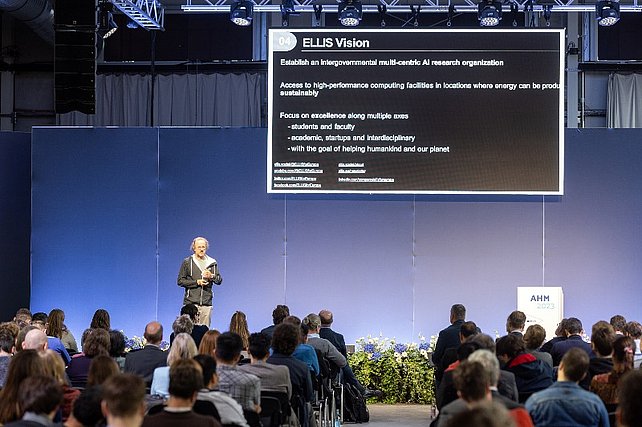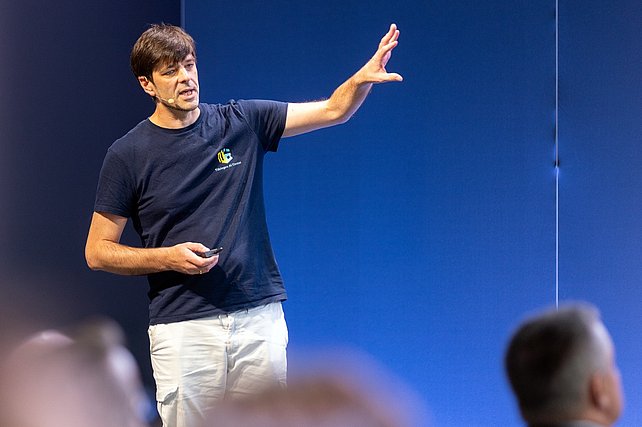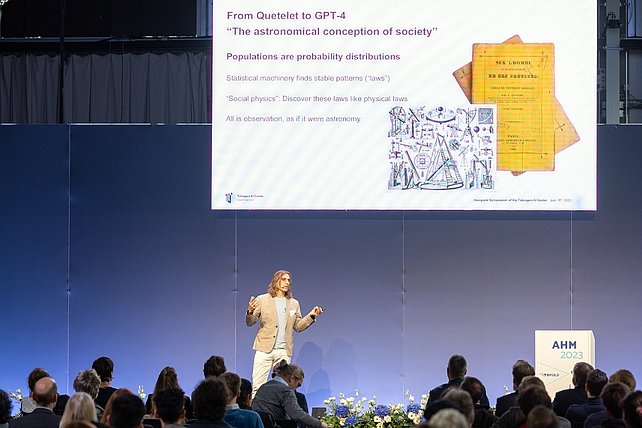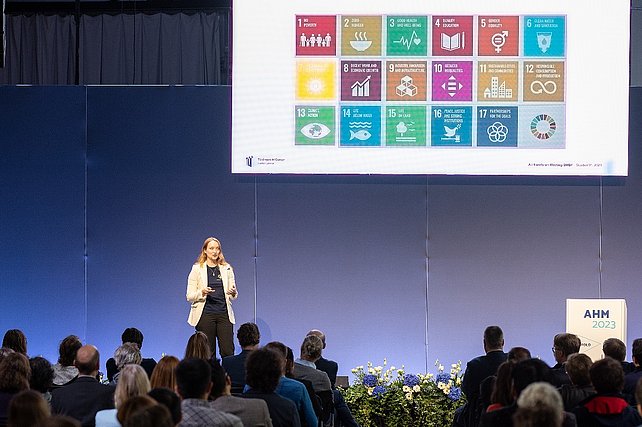On October 9th and 10th, 2023, the Berlin Institute for the Foundations of Learning and Data (BIFOLD) at TU Berlin invited scientists from the university AI competence centers (BIFOLD, ScaDS.AI Dresden/Leipzig, Lamarr Institute, Tübingen AI Center, and MCML) and the DFKI to Berlin to present and discuss the latest results of their research. As part of the Federal Government's AI strategy, the five university AI competence centers receive permanent funding by the federal government and their respective federal states since July 1, 2022. The university centers and the DFKI form a national network and are the foundation of the German AI ecosystem. In the context of this sustained funding, three new professorships have already been appointed in the centers, 17 professorships are currently in the appointment process, and over 15 junior research groups have been or are being established.
Under the aegis of the German government's AI strategy, these centers have been endowed with sustained funding by both the federal government and their respective state hosts since July 1, 2022. Parliamentary State Secretary to the Federal Minister of Education and Research, Mario Brandenburg, visited the AI competence centers this summer to see their respective progress and positive impact. "Each center has its own strengths. We want to build on this and develop them into leading European institutions for AI research," Mario Brandenburg underlined. The new professorships and research groups attract international AI scientists, strengthen German AI research as a whole and benefit the training of new AI experts.
The first day was a testament to the spirit of collaboration and knowledge exchange. After a series of introductory presentations by the directors of the participating institutions, attendees were treated to vibrant networking sessions, fostering discussions on prevalent AI research topics. Highlights included talks by Directors Matthias Bethge and Bernhard Schölkopf on the Tübingen AI Center and the ELLIS network, respectively. Furthermore, illuminating sessions by Moritz Hardt on “The Power of Predictions” and Nicole Ludwig on “Machine Learning for Sustainability” captivated the audience.




The networking sessions were further enriched with Yannic Neuhaus discussing the intricacies of detecting deleterious spurious features in ImageNet. Research group leader Seong Joon Oh moderated a popular session on the impending challenges in AI, with Hwaran Lee, Naver Cloud Lead, as well as Jonas Andrulis and Lorenz Lehmhaus of Aleph Alpha. Additional sessions delved into themes like “Earth Observation” and the confluence of “Vision and NLP".
The subsequent day pivoted around engaging panel discussions. Following a scientific poster exhibition and a warm greeting from Gonca Gürkeli-Dehnert, State Secretary of North Rhine-Westphalia, Mario Brandenburg spearheaded a dialogue on the contributions of German foundational AI research to trustworthy AI applications.




In the concluding panel, Philipp Hennig of the Tübingen AI Center contributed to a discussion on strategies to attract and retain premier AI talent in German academia and research establishments. The overarching aim: bolstering Germany's stature as a coveted destination for AI researchers globally.